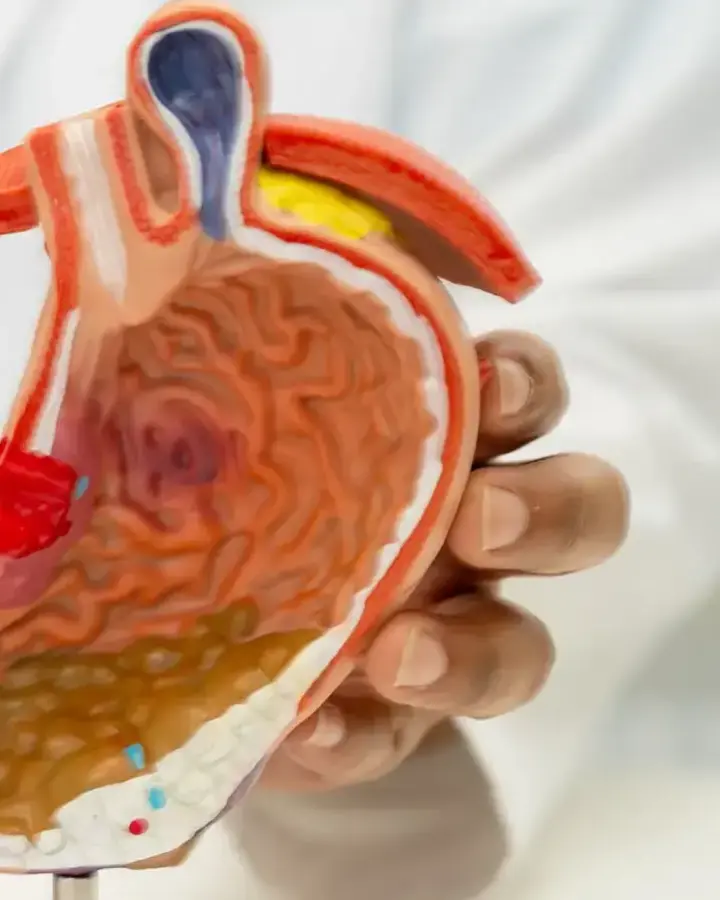Gastroenterology
Gastroenterology is the branch of medicine focused on the digestive system and its disorders. Digestive discomfort — like heartburn, bloating, or more serious symptoms — can disrupt your daily life. At United Regional, our gastroenterology team provides expert care for conditions affecting the stomach, intestines, pancreas, and colon.
Choose United Regional for Gastroenterology Services
Using advanced diagnostic procedures, our gastroenterology team detects disease early — when treatment is most effective. With a focus on prevention, precision, and personalized care, we’re here to help you find answers and lasting relief.
How can United Regional’s gastroenterology services help you?
If you’re experiencing ongoing digestive problems, your first step should be to see your primary care physician. They can help determine whether your symptoms can be resolved with basic treatment or if you need to see a specialist.
If the problems can’t be resolved easily, you may need to see a gastroenterologist — a physician who specializes in digestive health.
We provide comprehensive care for a wide range of digestive issues and conditions, including:
- Colon health and colorectal cancer prevention
- Diagnostic and screening procedures
- Heartburn, acid reflux, and bloating
- Pancreatic conditions
- Stomach and intestinal disorders
Endoscopic Ultrasound: A Clearer View of Digestive Health
Endoscopic Ultrasound (EUS) is a minimally invasive procedure that combines endoscopy and ultrasound to produce high-resolution images of your digestive organs. During the procedure, a thin, flexible tube with an ultrasound probe at the tip is gently inserted through the digestive tract.
This advanced imaging technique allows your care team to view detailed images of the colon, pancreas, and other digestive system structures from inside the body. EUS offers greater accuracy than traditional imaging methods, helping detect tumors, metastatic disease, and other abnormalities earlier — when treatment can be most effective.
At United Regional, we use EUS to support faster, more precise diagnoses while guiding your care with confidence.
Colorectal Cancer: Why Screening Matters
Colorectal cancer is one of the leading causes of cancer-related deaths in the United States for both men and women. The American Cancer Society estimates that approximately 150,000 new cases will be diagnosed each year.
The good news? The death rate has been steadily declining since the mid-1980s. That’s largely because more people are getting regular screenings, which help detect and remove polyps — small growths that can turn into cancer — before they become dangerous. Screenings also allow doctors to find cancer earlier, when it’s easier to treat.
In its early stages, colon cancer often has no symptoms, which is why proactive screening is so important. Most people at average risk should begin screening at age 50, but your doctor may recommend starting earlier based on your personal or family health history.
Colorectal Cancer Screening Options
Screening tests are designed to detect disease in people who don’t have symptoms. These tests can help prevent cancer by identifying and removing polyps early. At United Regional, we offer several types of colorectal cancer screening, including:
- Colonoscopy: A longer, flexible tube is used to view the entire colon and rectum.
- Double contrast barium enema: An X-ray test that highlights the colon and rectum to detect abnormalities.
- Fecal occult blood test and fecal immunochemical test: These tests check stool samples for hidden blood, which may be a sign of polyps or cancer.
- Sigmoidoscopy: A flexible, lighted tube is used to examine the rectum and lower colon.
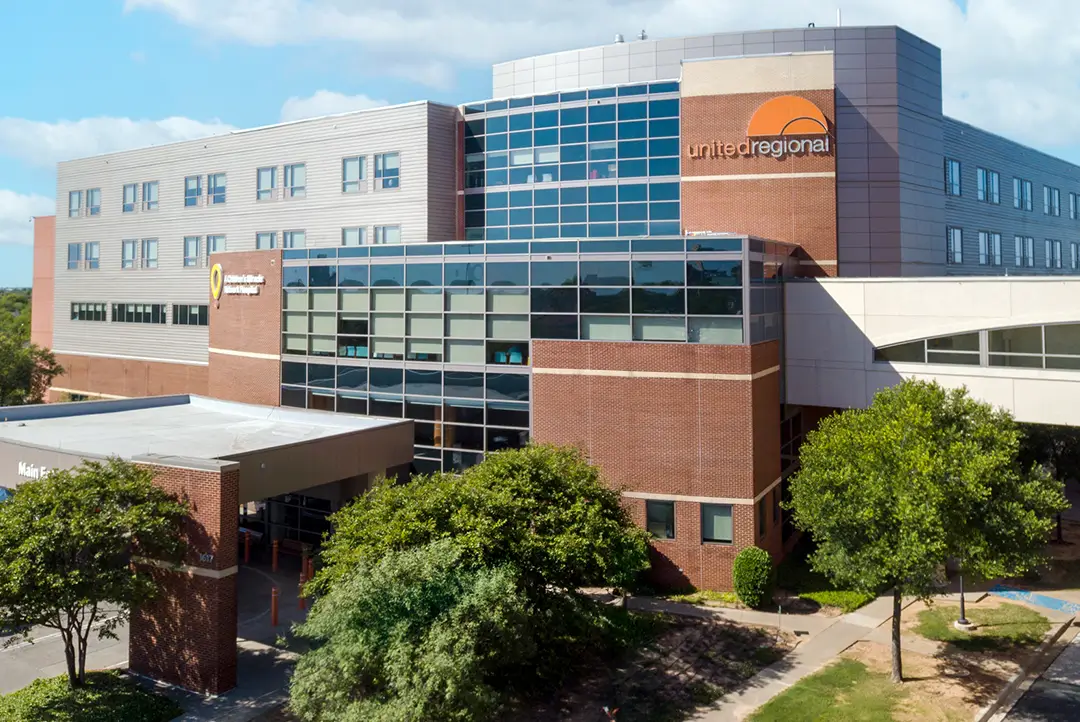
Our Approach to Gastroenterology
We take a proactive, patient-centered approach to digestive health. Our team works closely with your primary care provider to ensure timely referrals, accurate diagnoses, and personalized treatment plans. Whether you’re managing chronic symptoms or scheduling a routine screening, we’re committed to delivering care that’s clear, compassionate, and effective.
Related Gastroenterology Services and Technology
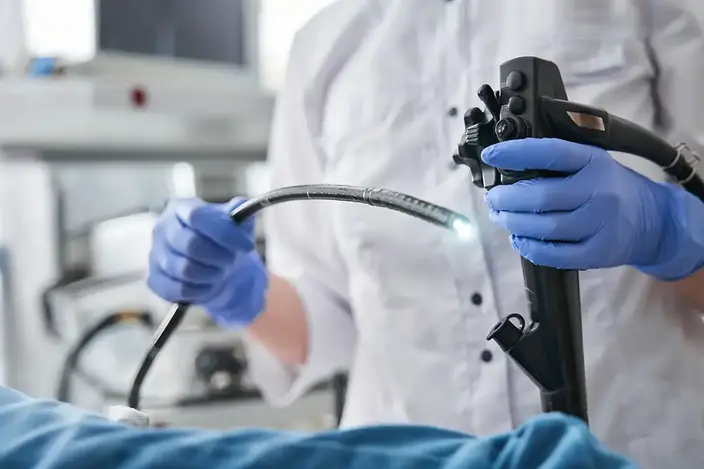
Endoscopy
Explore United Regional’s advanced endoscopy services, including ERCP, EUS, and capsule procedures, with expert care and diagnostics.
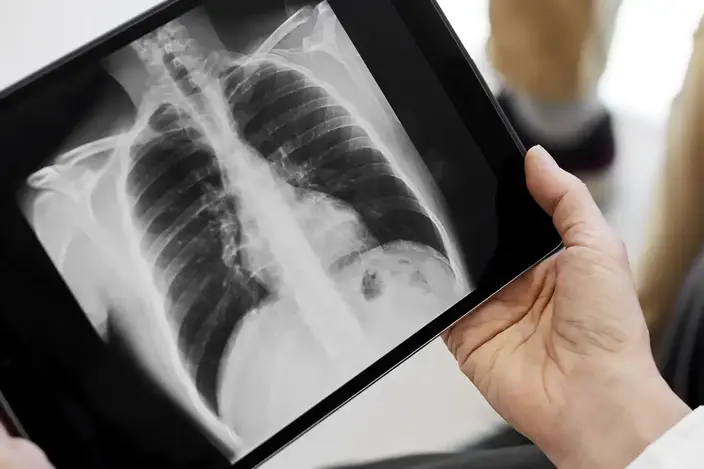
X-Ray & Fluoroscopy
United Regional offers advanced diagnostic imaging through X-ray and fluoroscopy — a real-time imaging technique that uses continuous X-rays — ensuring timely and accurate diagnoses.
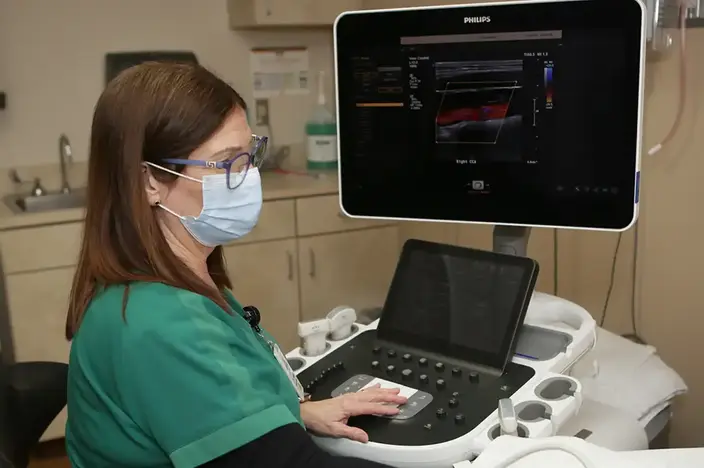
Ultrasound
United Regional offers ultrasound imaging for a wide range of diagnostic needs, including pregnancy, abdominal organs, blood vessels, musculoskeletal systems, thyroid, and reproductive organs.

